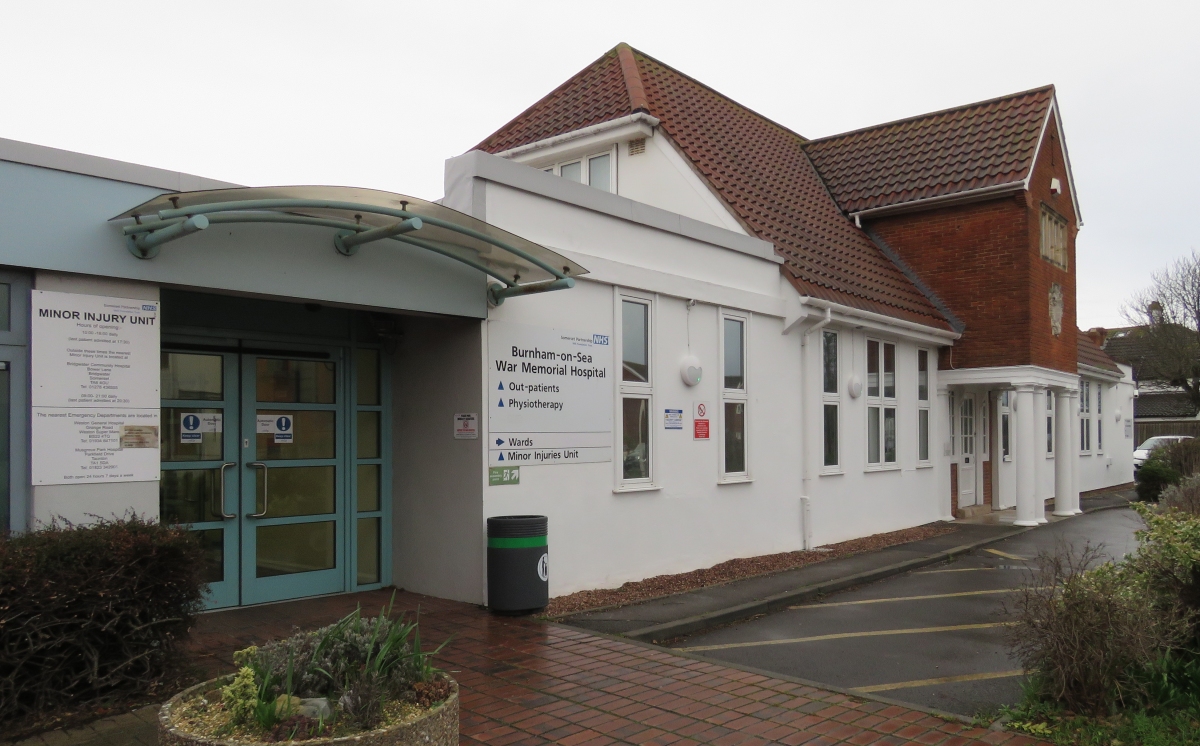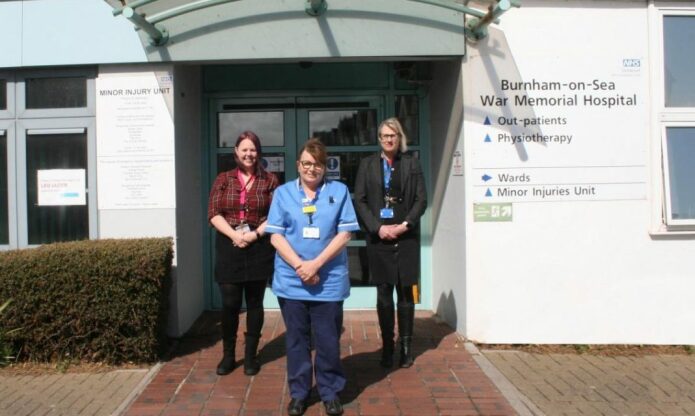Patients in the North Sedgemoor area can now get a range of blood tests and investigations at Burnham-On-Sea Hospital.
It’s all part of a new community investigation hub that has launched at Burnham-On-Sea Hospital and means that many patients no longer need to travel to Musgrove Park Hospital for hospital-related blood tests.
The service is run by the North Sedgemoor primary care network with assistant practitioner Debbie Sinclair providing the lead role.
The overall vision for Somerset is for all 13 primary care networks in the county to have their own similar hubs.

It’s in line with the NHS’ move towards giving patients access to diagnostic tests at facilities away from busy district hospitals – which was recommended by former national cancer director Professor Sir Mike Richards in his report on diagnostic centres: Diagnostics: Recovery and Renewal.
Julia Holman, the community investigation hub’s programme manager, says: “We’re really pleased to be able to offer this service closer to the homes of people in the North Sedgemoor area.”
“The hub is in effect a walk-in service so patients can access it any day of the week as long as they are feeling well.”
“Funding was awarded by NHS England to establish health and wellbeing hubs within the Somerset system, and this is the first of more to come.”
“Our assistant practitioner for the hub, Debbie Sinclair, is a joint appointment by Somerset FT and North Sedgemoor Primary Care Network (PCN), which is a great example of joint working with system colleagues.”
“In addition, we were also given funding for the service to carry out a series of diagnostic tests, such as spirometry to monitor patients with lung conditions and FeNO testing to diagnose asthma, as well as blood pressure checks and electrocardiograms to check heart rhythm.”
“The idea again is that patients could have those diagnostics closer to home without needing to travel long distances to the district general hospital.”
“This is very much in the vision for the future of the community hospitals, and we will continue to develop health and wellbeing hubs at all of the hospitals where these type of healthcare services could be offered.”
Debbie Sinclair, an assistant practitioner who runs the community investigation hub, adds: “Our hub has been up and running at Burnham-on-Sea Hospital since February 2022 and we’ve seen a really big demand from patients so far, which seems to be growing every week.”
“Patients have told us that they like the convenience of visiting their local community hospital rather than going into a district general hospital or to their busy GP practice. This is particularly important as we have a high percentage of elderly patients in North Sedgemoor.”
“The hub gives them another opportunity to get blood tests and other diagnostic tests done before they next see their consultant, which will save time or additional hospital appointments. It also means the consultant will get their results in a more timely manner, which could mean treatment starts sooner.”
“It means that patients can get the right treatment at an earlier time without needing to wait and risk their condition getting worse – it’s both preventative and addresses their health condition. It’s also an important part of the NHS’ recovery plan to reduce waiting lists following the pandemic.”
“Most of the blood tests we cover are needed before or following a patient’s hospital appointment. Prior to the pandemic the patient would have visited a district general hospital outpatients department for a follow-up appointment, but many of these are now taking place virtually – by phone or video.”
“Many of the patients I see tend to have complex health needs and when I take their bloods, they often share their life story giving me an opportunity to suggest further interventions or signpost to other services where appropriate.”
“The hub is developing all the time and before we opened, I spent three weeks with Highbridge-based nurses and healthcare assistants learning what their day-to-day workload is like so I can call them up for advice.”
“It has been great to meet and work with my colleagues in the primary care network and we’ve been able to call on each other for help on many occasions, which works brilliantly.”











